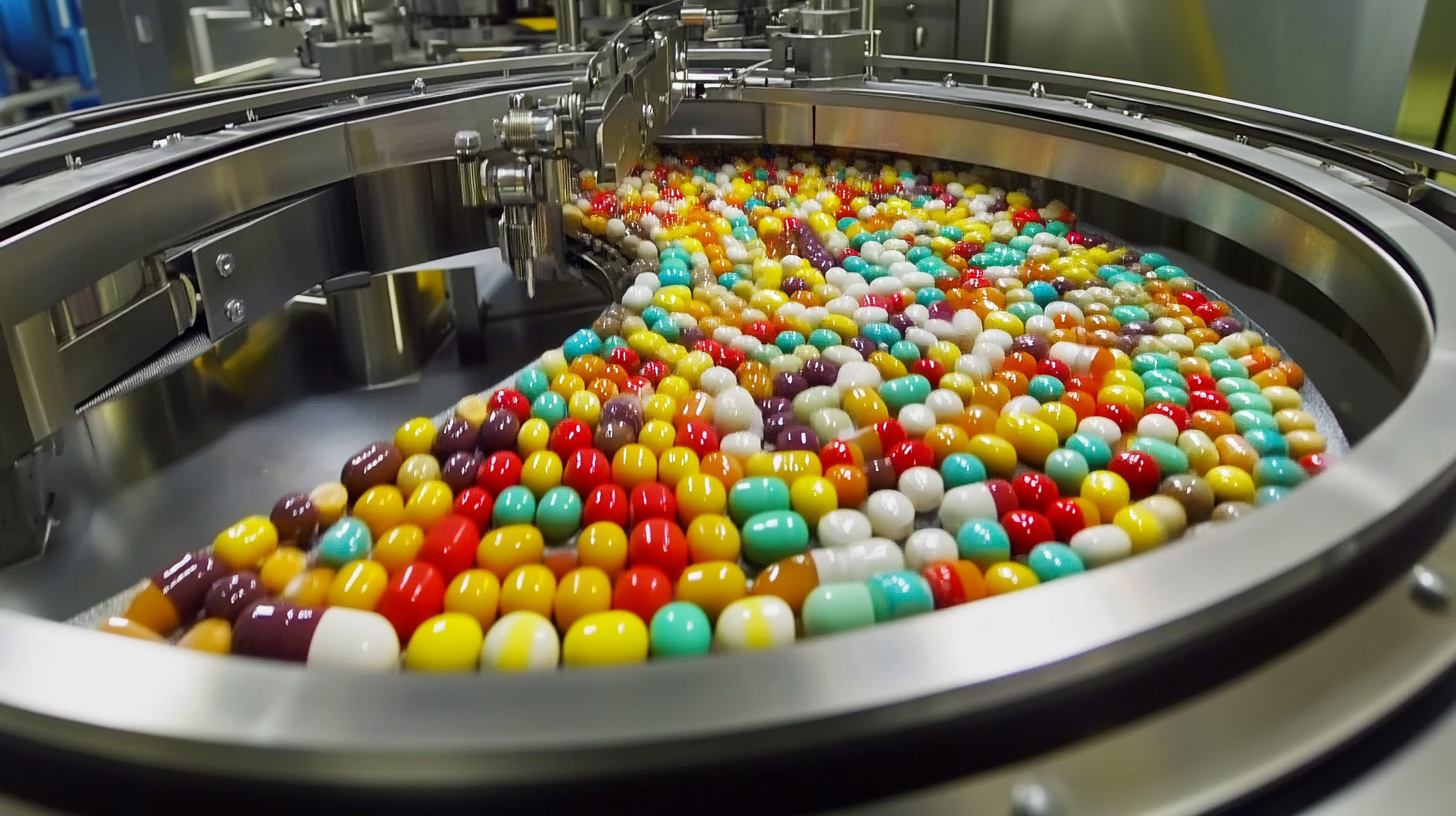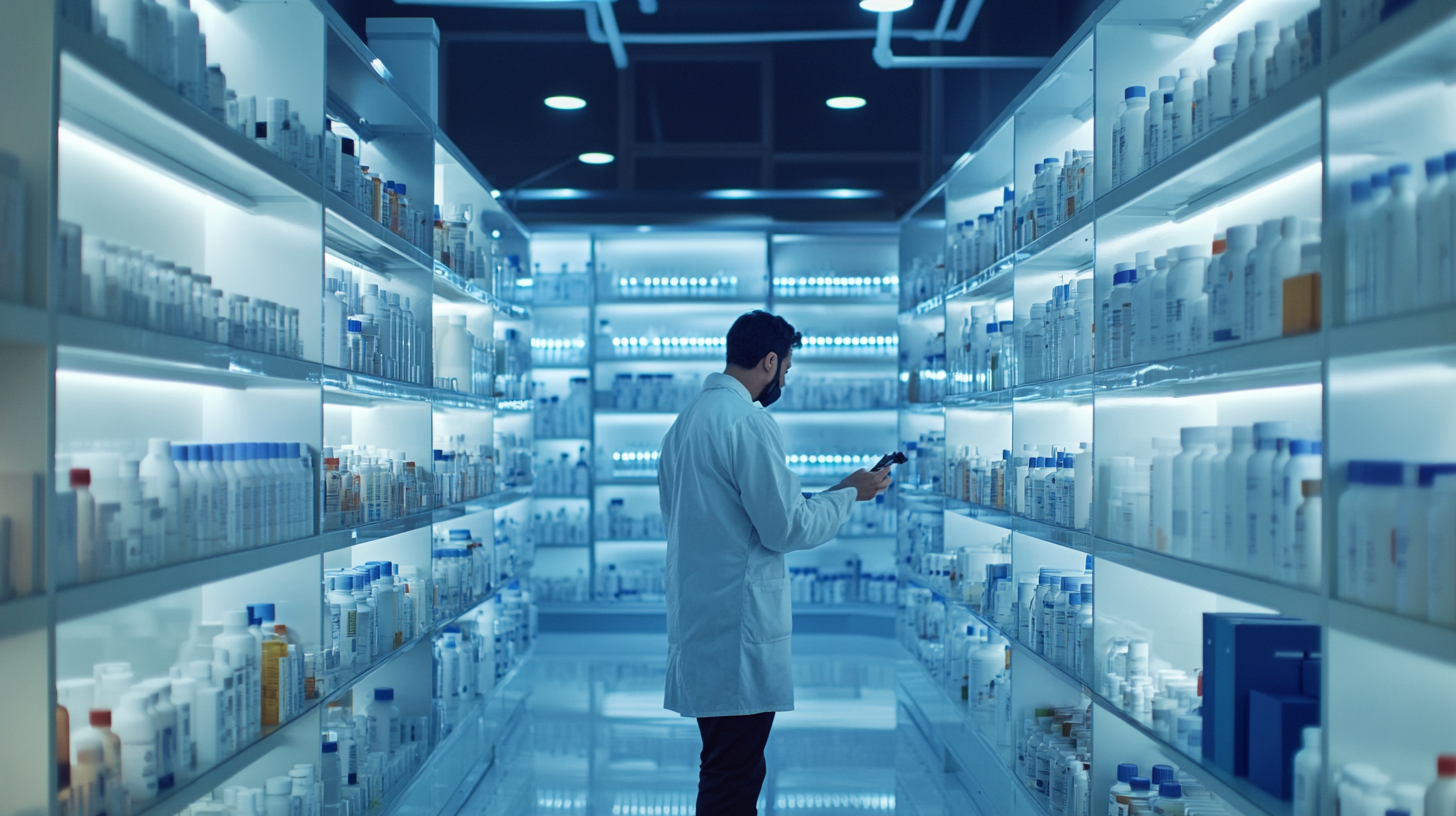Under pressure of stiff global competition111, pharmaceutical industries strive to improve efficiency without compromising on quality. Within this scenario, the Pharmaceutical Manufacturing Process emerges as one of the most pivotal areas through which this drive could be achieved. It is the process that regulates every dimension of drug production in order to fit proper procurement methods concerning the supply chain and operational efficacy. On one hand, for organizations aspiring to global procurement success, reengineering the manufacturing process can greatly reward, from cost reductions all the way through enhanced time-to-market.
Maximizing the pharmaceutical manufacturing process would require the infusion of cutting-edge technologies and best practices addressing the undulating nature of global supply chains. Via automation, lean production, and data analytics, pharmaceutical firms could expect benefits in productivity as well as flexibility with respect to responding quickly to shifting market demands. The post will evaluate various strategies and insights that could help manufacturers through the maze of the pharmaceutical jigsaw toward successful global procurement, thus keeping a firm foothold in a rapidly evolving industry.

Optimizing processes, especially, is cogent to achieving global procurement success in the highly contested arena of pharmaceutical manufacture. Companies, according to a recent report by McKinsey, can reduce logistics cost by as much as 20% along with an improvement of 30% in delivery times due to their supply chain optimizations. Such efficiencies are indeed critical since the global pharmaceutical market is projected to reach a whopping $1.5 trillion by 2023; therefore, production strategies have to be well devised to cater to growing demands. One such strategy will be using cutting-edge data analytics for manufacturing processes. According to a Deloitte report, 61% of top pharmaceutical companies have availed real-time monitoring of production metrics through some sophisticated analytics technology. This proactive manner of monitoring production allows it to detect bottlenecks and quality control immediately and prevent waste while shortening time-to-market. However, it can also lean toward manufacturing, making the business much more efficient and responsive to market changes, things we need these fast-paced times. Supplier collaboration and stakeholder consultation enhance the procurement process. However, according to a report by the Pharmaceutical Supply Chain Initiative, partnerships geared toward transparency and communication could further increase order accuracy by 25%. Therefore, pharmaceutical manufacturers guarantee an improved supply chain throughout this collaborative environment that would ultimately help in delivering high-quality products to patients around the globe. All these strategic approaches would not only give rise to efficiencies but also place businesses for a sustainable future in the global economy.

It has now been realized after some years of competition in the pharmaceutical manufacturing industry that technologies, especially those at an advanced level, play a crucial role in helping industries reduce performance wastage and improve efficiency. Effectively streamlining manufacturing processes even further involve automation, artificial intelligence applications, and big-data analytics, all of which signal a significant evolution in the way these manufacturers transform their operations. Moreover, augmenting such an environment allows the real-time monitoring of data-driven decision-making for an organization to achieve more agile and responsive manufacturing operations. These innovations can help speed production processes, lessen errors, and optimize resource allocations for a specific organization.
The intelligent manufacturing system helps pharmaceutical firms achieve more visibility and traceability. By acquiring Web-connected instruments, manufacturers can monitor the equipment's performance and material movement in accordance with stringent and rigorous regulatory standards. Such control assures not just product quality but solidifies trust from all stakeholders-from suppliers to consumers.
With all these occurrences, it seems to be a part of the new trend in the world; however, the industry's transition to a much more digitized form of the manufacturing process is unstoppable. Decentralized operations induced by cloud computing promote collaboration among global teams. This will erode geographic boundaries and add diversity to skills and resources; thus, good procurement can be achieved. Technology is not a trend in pharmaceutical manufacturing; it is one of the strategies for driving forward the industry in an era that becomes increasingly globalized.

In fact, quality compliance goes beyond regulatory obligations to the very basis of efficient operation and manufacture. The procurement hurdles link many multinational companies, requiring them to maintain and ensure that each product passes through rough quality tests and at the least has to meet safety and efficacy standards. This principle continues with the raw materials acquired from reputable suppliers, assuring the company about the sources regarding their compliance with GMPs. Prioritizing quality at the beginning has already developed some systems that may curtail possible risk due to poor input materials that may have simplified production processes. Apart from that, a well-structured quality compliance system induces a culture of continuous improvement in manufacturing operations. All staff, from management to operators, must be trained about this importance, and therefore each of them would become detailed and proactive in all problem solving. Quality by design (QbD) or periodic audits ensure the quality-wise compliance of manufacturing processes but also render them flexible to the changing regulatory scenarios. Therefore, pharmaceutical manufacturers can enhance their performance while reducing the recall costs and breaches of compliance. The combination of advanced technologies such as automation and digital tracking systems enhances quality compliance and allows real-time data analytics to help continuously validate compliance metrics, thus allowing issues to be solved before they get to serious levels of trouble. Adopted proactive stance not only leads to smoother production flows but also adds value in terms of assuring the stakeholders of the reliability of products offered in the international market. Quality is embedded in the core of pharmaceutical manufacturing for major efficiencies in driving success in global procurement.

In the changing world of pharmaceuticals manufacturing in which strong supply chain collaboration is one of the factors that determine success in procurement, collaboration increases efficiency and resilience when confronted by challenges posed by the global marketplace. According to Deloitte, 79 percent of supply chain professionals said that enhancing supplier relationships enhances operational performance. This figure highlights the need for strong partnership engagement by pharmaceutical companies that promote openness, communicate, and trust.
Collaboration exists beyond the mere transactional realm. The WHO study has also reported that strategic alliances with suppliers can reduce the lead times to a minimum of 30 percent, thus assisting in faster go-to-market operations. Hence, through these partnerships, pharmaceutical companies are able to drive their procurement strategies along the lines of their suppliers' capabilities and specialties. By investing in communication tools and alliance planning initiatives, companies maximize their ability to see marketplace fluxes and refine production accordingly to avert disruptions.
Within the area of supply chain collaboration, technology offers a plethora of results. According to a report by McKinsey, transformation of digital supply chains can lead to procurement cost reductions of 25%. Advanced data analytics and real-time information sharing enable organizations to make inventory management and demand forecasting optimization. As the pharmaceutical industry evolves in the face of regulatory pressures and changing consumer demand, an emphasis on driving strong collaborative supply chains will become key to sustaining competitive advantage and ensuring success with global procurement.
In the highly competitive pharmaceutical sector today, cost-efficiency is critical for maximizing return on investment (ROI). The report from McKinsey & Company stipulated that even a mere 10% reduction in manufacturing costs is enough to fatten any company's bottom line provided that some strategic procurement initiatives are in place. Companies can adopt lean manufacturing practices and optimize their supply chains in order to foster operational efficiencies, which maximize cost savings needed to give rise to a competitive edge.
Adopting advanced technologies, including automation and data analytics, is one potent way to ramp up cost-efficiency. As per a Deloitte study, pharmaceutical companies that invest in digital supply chain technologies can realize operational cost reductions of as much as 20%. These technologies enhance production throughput and refine quality control measures, which lead to reduced occurrences of discrepancies and recalls. Furthermore, data analytics increase demand forecasting and inventory management capabilities, ensuring timely and cost-effective procurement decisions.
In addition, pharmaceutical companies need to consider strategic partnerships with suppliers. Long-term relationships foster negotiation for favorable terms, allowing companies to achieve substantial savings on raw materials and components. Bain & Company stated that collaborative procurement strategies can reduce sourcing costs by 15% to 25%. This collaboration allows for more predictable pricing and promotes innovation through knowledge sharing, both of which further improve cost efficiency in the manufacturing process. When combined, these strategies create a more robust and responsive manufacturing paradigm that is poised for success in global procurement.
